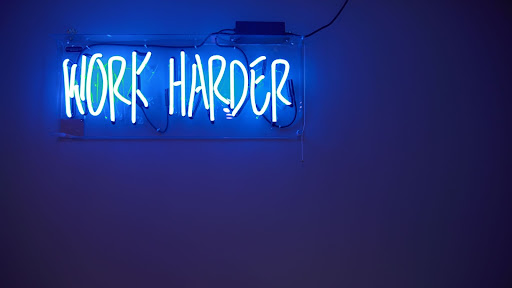I recently learned that my great-grandmother owns a small plot of land in Mississippi, and I’ve started considering returning to that land after college and farming it for the rest of my life. When I share this idea with others, I tend to get joking and sarcastic responses. Perhaps it’s the thought of me, someone who’s known no other home than the concrete jungle of Chicago, suddenly becoming a southern countryman that engenders less than serious reactions. Or perhaps it’s that I don’t present the idea with enough earnestness to be taken seriously. But I think there is something deeper at play here, something that points to our larger cultural attitudes toward labor and status.
In America, the labor that a person does is connected with the social status they have, and that linkage causes harm to our political and economic institutions.
Our TV shows and movies are saturated with signals about what jobs equate to high status and what jobs ought to be looked down upon. The fictionalized versions of the super-rich in popular media often have white-collar jobs, likely in finance or real estate, that require no manual labor and allow them to lead extravagant lives. The service jobs that do get glamorized in pop culture are also typically white-collar ones –– just consider how many popular shows there are about lawyers and doctors.
Beyond TV shows and movies, our own cultural values reinforce what we consider to be a prestigious job. Being employed by prestigious companies like Google, McKinsey, and Goldman Sachs is seen as a badge of honor, while having aspirations to work in the arts or do manual labor is frowned upon. Similarly, we demonize people who don’t participate in the workforce, labeling them lazy and accusing them of looking for handouts. This elitist view of labor proliferates online too. Social media hustle culture promotes the idea that constant work on entrepreneurial ventures is the only respectable way to participate in the labor force. LinkedIn encourages a merging of job titles and personal identity, pushing people to post updates bragging about their careers in the same way they would post life updates on traditional social media platforms.
We have become a country obsessed with workism, defined as “the belief that work is not only necessary to economic production, but also the centerpiece of one’s identity and life’s purpose….” Americans tend to see jobs as a reflection of a person’s character and values, and thus judge that person’s worth by the occupation they have.
The negative effects of this connection between personal identity and labor are manifold. On the personal level, our cultural beliefs about labor can encourage people to work to the point of burnout, thus damaging their physical and mental health. Workism also drives people away from pursuing their passions in favor of working in unfulfilling but well-paying jobs, thus stifling their creative capacity and harming their health.
On the institutional level, workism allows a toxic productivity culture to persist, where employees are encouraged to pour everything into their work, sacrificing their personal lives and health, to earn promotions and raises in some twisted conception of meritocracy. It justifies inefficient work practices that force us to operate like robots on strict 9-5 schedules. Politically, workism allows us to rationalize the harmful and exploitative labor practices that underlie our economy, practices which strip workers of their humanity and don’t pay them enough to survive. And it makes our weak welfare state and our refusal to strengthen it seem reasonable.
The theory that underlies our relationship with work is as follows: If work is a fundamental component of our identities, then we must commit to our jobs wholeheartedly, and any deviation from that undying commitment –– whether to pursue personal passions, to challenge the existing economic system, or to simply take a break –– will be seen as a personal failing that ought to be punished by denying us the means of survival. The people most likely to be burned by this hellish system are those already at the margins of American society, thus reinforcing our existing aristocracy.
To change, we need to end our cultural association of work and identity. We need to define personal value independent of occupation and employment status, and we need to restructure our economic institutions to reflect that change. That means expanding the welfare state such that people don’t have to work to survive, which will give people the space to find the career that best suits them. The chief objection to this proposal is that it would kill businesses left and right, effectively destroying our economy and reducing everyone’s ability to earn money. But our economy has long surpassed the level of productivity necessary to provide a decent standard of living for everyone — the only problem is that our consumption has outpaced that productivity growth. Thus, we will ultimately have to decide between maintaining our extravagant levels of consumption or creating more humane working conditions –– a tradeoff that seems quite simple to make.
Whatever we do, we cannot continue our toxic relationship with labor, where work and identity coalesce into one grisly concept that reduces our humanity to a job title, a number of hours worked, and a salary.

